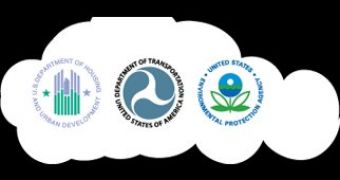The U.S. Environmental Protection Agency (EPA) committed to give $1.5 million (€1.11 million) to an estimated 125 local, state, and tribal governments who register before October 28, 2011, for the creation of sustainable communities.
The money will be given through two separate programs – the Smart Growth Implementation Assistance program (SGIA) and the Building Blocks for Sustainable Communities program.
The SGIA program, which EPA has offered since 2005, aims to support communities interested in implementing smart growth policies.
The Agency anticipates selecting three to four communities for assistance with the goal of creating models that can help other communities figure out how to develop in ways that make them more resilient to natural hazards, increase economic growth, and use locally generated energy. On the other hand, the Building Blocks program provides targeted technical assistance to communities that face common development problems. It employs a variety of tools such as improving pedestrian access and safety, zoning code reviews, and housing and transportation evaluations.
Assistance will be provided in two ways in the coming year. First, EPA will select up to 50 communities and provide direct assistance by EPA staff and private sector experts. Second, EPA has awarded cooperative agreements to four non-government organizations with sustainable community expertise to deliver technical assistance.
The organizations in question include the Cascade Land Conservancy, Global Green USA, Project for Public Spaces, and Smart Growth America.
"EPA is working to support communities in their efforts to protect health and the environment, and create more sustainable housing and transportation choices that are the foundation for a strong economy," said EPA Administrator Lisa P. Jackson.
"EPA experts will work side by side with urban, suburban, and rural communities, and help them develop the necessary tools for fostering healthier environments for families and children, and attractive places for growing businesses," Jackson added.

 14 DAY TRIAL //
14 DAY TRIAL //